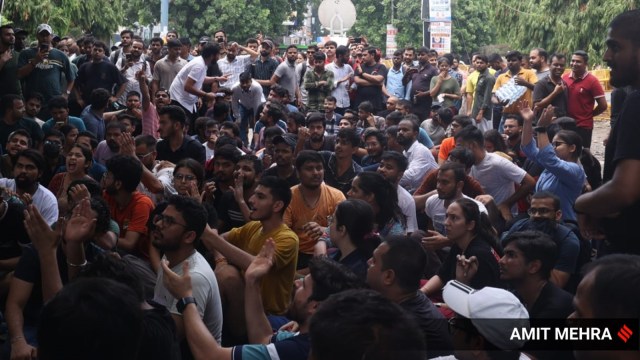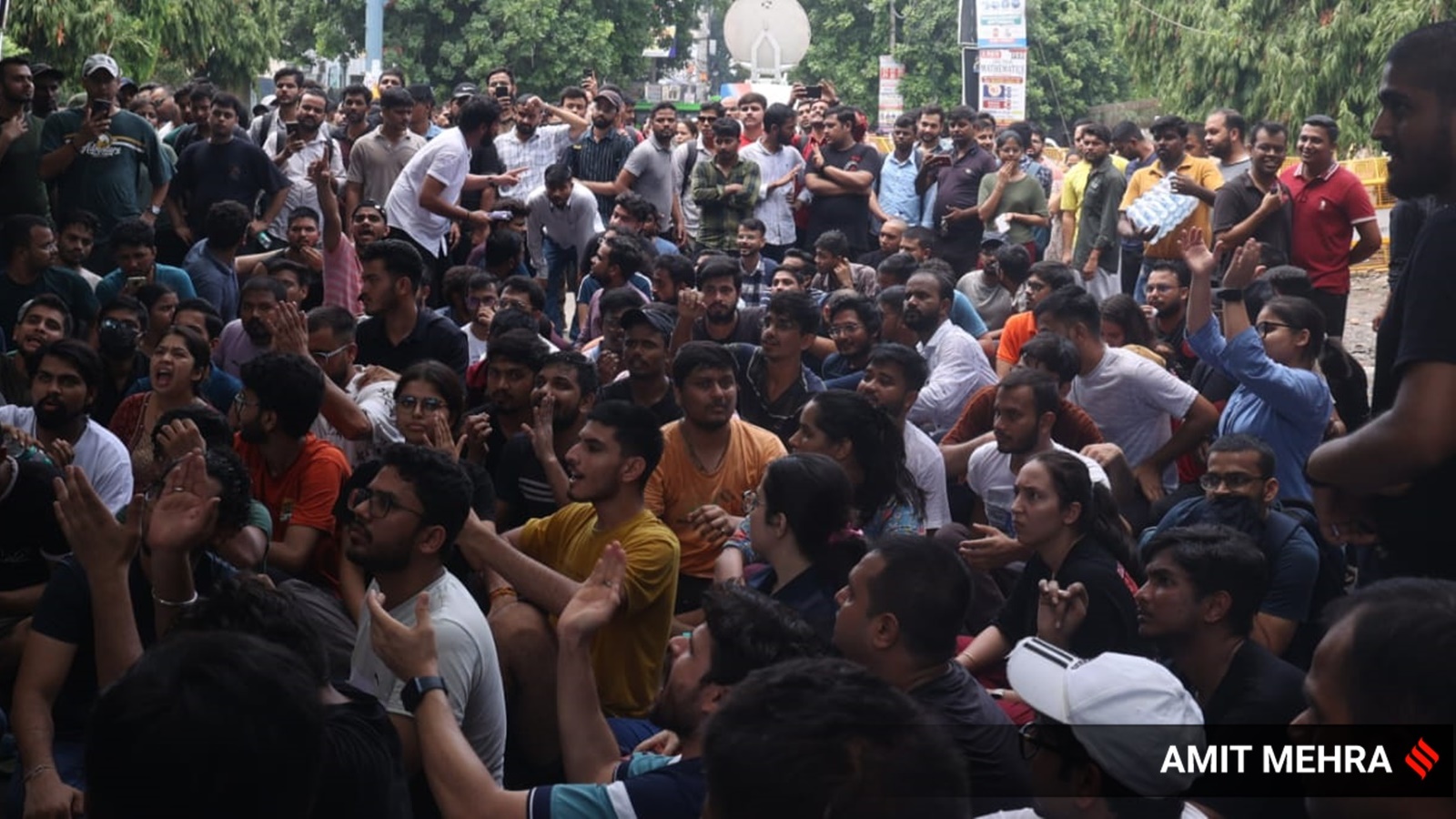
The tragic death of Shreya Yadav, Nivin Dalwin and Tanya Soni on July 27 after they were trapped in the basement of a civil services examination coaching centre in Delhi’s Old Rajinder Nagar, comes on the heels of another incident of electrocution of a young man. It paints a grim tale of the malaise in administration that the Capital faces.
As always, knives are out and the blame game is on. The ruling Aam Aadmi Party, which also controls the civic body (Municipal Corporation of Delhi, MCD), has come out with standard excuses of being deprived of powers for effective administration. If newspaper reports are correct, local MLA Durgesh Pathak was himself a UPSC aspirant and has studied in such a coaching centre. The Delhi wing of the BJP has demanded the resignations of Education Minister Atishi and MLA Pathak. Delhi’s Urban Development Minister Saurabh Bharadwaj, at a press meet, shared a video of a meeting last month on monsoon preparation, alleging that officers refused to cooperate with the government.
The truth of the matter is that the overall administration in Delhi is suffering and indeed has been suffering for a while. This has been exacerbated by the Chief Minister’s (CM) incarceration. Virtually no one is at the helm of affairs or in a position of effective decision-making to guide ministers and officers. With the matter of the CM’s arrest being argued in the highest court of the land, I daresay it cannot be anybody’s case to deny him bail. Arvind Kejriwal is most certainly not a flight risk. He has roots in India, his family — aged parents in frail health, wife and two children — live here.
More than that, he has developed a life around his own style of politics. Many do not agree with this style — I had numerous disagreements with him (some unpleasant), but the system makes allowances for such disagreements. If the case of the prosecution is that he can influence witnesses if he is out on bail, then this assumption is mislaid. Statements of witnesses have been recorded. In fact, some have turned approvers (as in the case against Manish Sisodia). Besides all of this, Kejriwal is sick.
Whatever jail doctors may say, there is no doubt that he is diabetic, as a consequence of which he has other ailments. The Supreme Court has also, in a recent pronouncement, underlined the need for a “sense of robust common sense” in looking at the nitty-gritty of each case. Chief Justice D Y Chandrachud has said that there is a tendency among lower courts to play safe. Therefore, as a sitting chief minister, Kejriwal’s bail should be considered with the sympathy it deserves.
On the other hand, however good his case may be, his assumption that he can function as CM from jail is not correct. It is impossible to function from where he is. His lawyers are begging the courts for permission for more frequent online meetings with Kejriwal (they have now been allowed two per week). How can he attend to the numerous files that a CM needs to see and pass instructions? How will officers meet him to discuss critical/pending issues? How can he have Cabinet meetings which are so necessary in a Cabinet system?
Therefore, however good his stand may be on political or moral (if he perceives his incarceration as immoral) grounds, it is impractical, non-functional and incorrect. He must hand the charge of his office to another colleague till such time that he remains in jail. If not, then Delhi will continue to limp and be faced with incidents that should never happen.
It’s in the BJP’s interest that Kejriwal stays in prison. Kejriwal is the undisputed king in the conglomerate of people who got together to cleanse Indian politics and provide governance hitherto not seen before. In a fit of emotion, he declared himself an anarchist and has often challenged systems that have stood the test of time. When offered any challenge, he has had no hesitation in showing the door to senior party colleagues. Prashant Bhushan, whose father the late Shanti Bhushan generously funded the fledgling party, and Yogendra Yadav, were publicly humiliated. Ashutosh (who fought a Lok Sabha election and wrote a book lauding Kejriwal), Ashish Khetan, Kumar Vishwas, now Swati Maliwal and many others were pushed out or left. The general grouse has been that one has to follow the boss.
With both Kejriwal and Sisodia in jail, the party runs the serious risk of breaking up. This is a group of young men and women who joined the AAP for different reasons — some with the genuine desire to fight the existing system, others for political ambitions or not having found space in other established parties, etc. The glue, apart from Kejriwal, is the smell of power. Kejriwal is aware of this and has pushed his wife to centre stage to keep the flock together. Her ability to do so has to be tested in the face of greed, ambition and the BJP’s uncanny and undisputed ability to break parties. Nothing would please PM Narendra Modi or Amit Shah more than the eventuality of a broken AAP. Having won all seven Lok Sabha seats, the party smells the possibility of winning back Delhi after 25 years.
Amid these shenanigans, intrigues, politics, and power games, Delhi will struggle. It’s time for the Union government to once again look at the administrative structure of Delhi, the Balkrishnan report of 1987, the provisions under Art 239 of the Constitution (roles of CM, Lt Governor and the Assembly), the functioning of the MCDs and their financial and administrative viability as three entities.
The writer is a former civil servant and former Lt. Governor, Delhi




